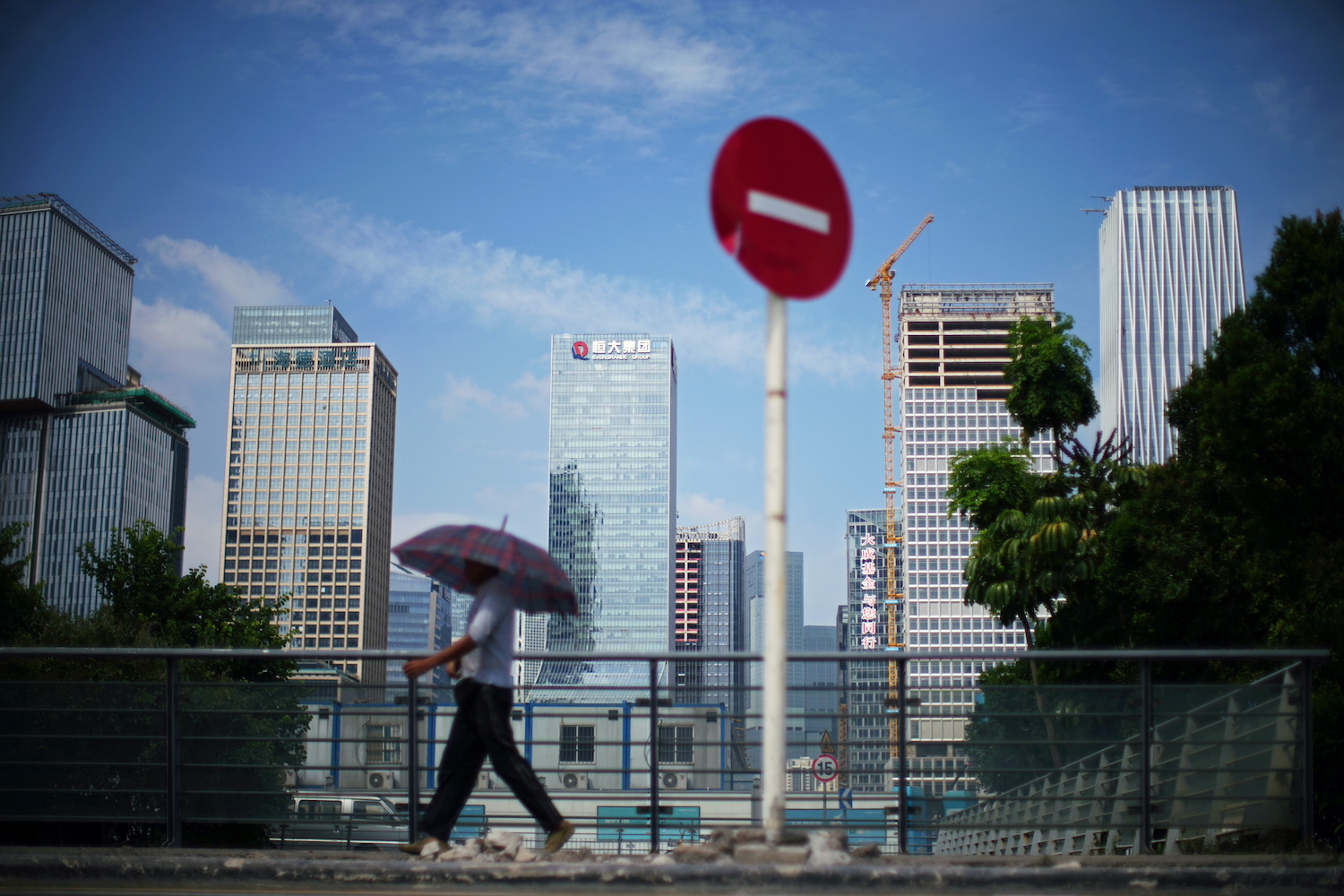China risks a collapse of confidence in the implicit guarantees that underpin its financial system if it moves too quickly to address property developer China Evergrande Group’s liquidity crisis, says the Reserve Bank of Australia.
And if its authorities act too slowly the likelihood of more severe financial stress in the future will increase, said Australia’s central bank in its latest Financial Stability Review. It added that the ”vulnerabilities in China’s financial system remain elevated and authorities face a difficult balancing act.” Many domestic investors believe the government will shield them from losses when large companies default and thus implicitly guarantees their investments.
China Evergrande’s financial crisis is shining a light on the frailty of China’s gigantic property sector as concerns mount that a disorderly unravelling of the world’s most indebted developer risks triggering a domino effect of industry defaults. If the regulatory environment does not improve and property sales continue to slide, 60% of China’s privately owned developers will go bankrupt by June of next year, said Pan Jun, chairman and chief executive of developer Fantasia Group, at a forum last month.
With almost a quarter of the country’s GDP tied up in the property market, a misstep by policymakers risks triggering a sudden selloff, sending shockwaves through the entire economy. That would inflict potentially huge losses on investors and put millions of citizens’ homes in peril. The likelihood of that happening increased when Evergrande, saddled with $305 billion of liabilities including $70bn of offshore bonds, recently missed a second bond repayment in a week. That led to the suspension of trading in its shares.
The RBA said Evergrande’s liquidity crisis is driven by its declining profitability, the shorter maturity of its liabilities relative to its assets, and an inability to raise additional debt to meet interest payments and pay suppliers and contractors. It noted the developer’s attempts to salvage its situation by selling properties at steep discounts and offloading other assets to raise funds, but concluded that the measures were insufficient.
Expected Collapse
“Evergrande is widely expected to collapse without some type of government support,” it said. ”Continued bailouts also risk further entrenching perceptions of implicit guarantees.”
The company’s collapse may be a source of systemic stress if it shifts perceptions about overall risk in the property sector, the RBA said. Investors in opaque shadow finance investment products, such as trusts and wealth management products, may also become concerned about their potential exposure to developers and withdraw funds, it said.
“A run on shadow banking products would create further stress in the property sector and would be damaging for the financial system more broadly,” it said. ”In addition, many banks could face large losses as they are significant creditors to developers both directly and indirectly (via shadow
financing).”
A sharp fall in property prices would impact the health of local government finances as many rely heavily on land sales for revenue, including to repay debts of local government financing vehicles, it said. Land is used as collateral for loans to such vehicles, and so a sharp fall in land prices will lead to losses for creditors if these vehicles were to default, it added.
Another Payment Missed
Meanwhile, Evergrande missed another dollar bond interest payment deadline this week in a further indication of its plight. While the developer does not have any more onshore or offshore bonds maturing this year, it must still make coupon payments for its offshore bonds totalling $547.57 million by December 28. It is also due to make a 121.8 million yuan ($18.84 million) coupon payment on an onshore bond on October 19.
• By Jim Pollard and Kevin Hamlin
ALSO SEE:
If Evergrande Falls, Who Will be Next?
Fall In China’s $1.3tn Land Sales to Test Regional Finances
China Pulls Out the Big Guns to Avert Evergrande-Fuelled Disaster
Evergrande Not Too Big to Fail, China Can Manage Its Collapse: Enodo
























